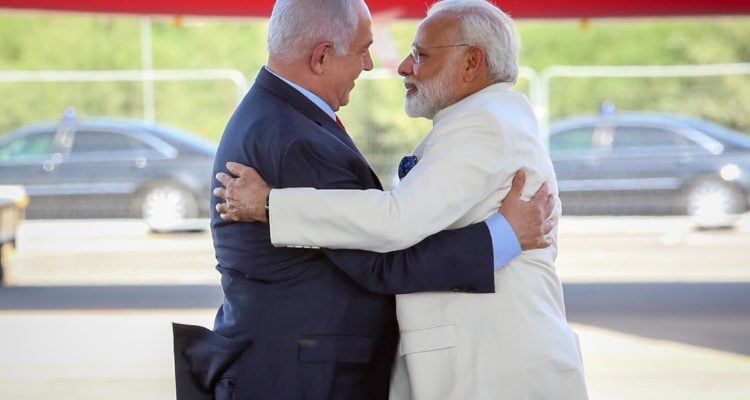Relations between Israel and India have warmed up considerably in recent years, especially since Indian Prime Minister Modi took office.
By TPS
Prime Minister Naftali Bennett will make his first official visit to India at the beginning of April, at the invitation of Indian Prime Minister Narendra Modi, to celebrate the 30th anniversary of the establishment of relations between Israel and India.
The two leaders first met on the sidelines of the UN Climate Change Conference (COP26) in Glasgow in October.
“This visit will reaffirm the important connection between the countries and the leaders,” the Prime Minister’s Office stated.
“The purpose of the visit is to advance and strengthen the strategic alliance between the countries and to expand bilateral ties. In addition, the leaders will discuss the strengthening of cooperation in a variety of areas, including innovation, economy, research and development, agriculture and more,” the statement said.
During his visit, Bennett will meet with Modi and other senior government officials and will visit the Jewish community in the country.
Bennett highlighted that “the relations between our two unique cultures are deep, and they rely on deep appreciation and meaningful collaborations. There are many things we can learn from the Indians, and this is what we strive to do. Together we will expand our cooperation to other areas, from innovation and technology, security and cyber, to agriculture and climate change.”
Relations between Israel and India have warmed up considerably in recent years, especially since Modi took office.
Modi is responsible for the tectonic shift in the country’s foreign policy, a fundamental departure from India’s traditional support of the Arabs to an alliance with Israel.
Prime Ministers Benjamin Netanyahu and Modi met at the UN in September 2014, the first such meeting in over a decade.
India has shifted from voting against Israel at the United Nations to abstaining in such resolutions.




